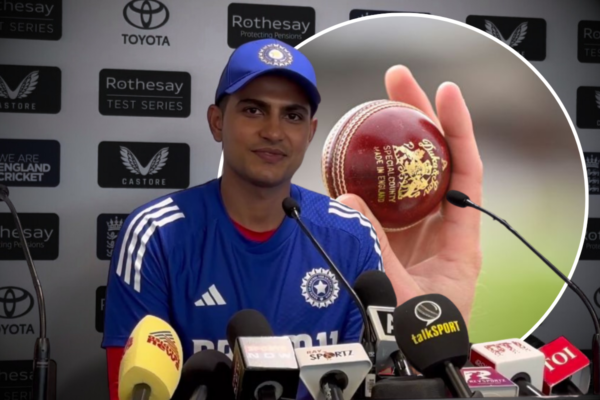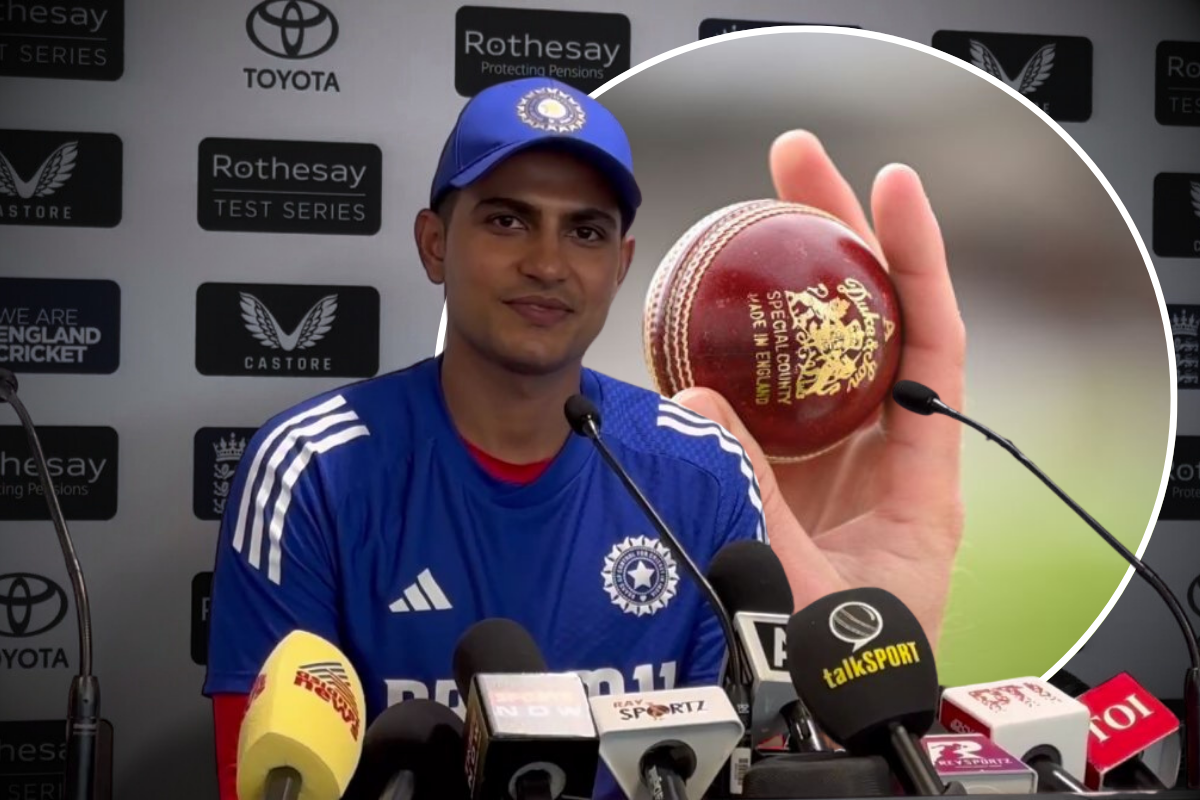
The visitors will face England at the Lord's Cricket Ground in the third Test, beginning July 10.

India’s skipper, Shubman Gill, helped India win the first Test match under his supervision at Edgbaston. The visitors defeated the hosts by a massive margin of 336 runs. Even though the Indian team won the game, Gill accepted that the game lost its essence because of the combination of the flat pitches and the Dukes ball.
The conditions in Birmingham helped the batters for most parts of the match. It was difficult for the bowlers to make the most of a tiny window of about 30 overs when the Dukes ball stayed hard and offered some help.
After the Indian team claimed 20 wickets – 15 of them in bursts with three new balls and he was asked what he thought about these conditions that occurred at the same time with the Bazball era in England.
ALSO READ:
“It gets very difficult for the bowlers,” Gill said. “Even more than the pitch, the ball is going soft and out of shape very quickly. I don’t know what it is – weather, pitches or whatever – but it gets very difficult for the bowlers to get wickets in these conditions. As a team, when you know it is difficult to get wickets and runs are coming easily, a lot of things are out of your control. I think there should be a little help at least.
“If the ball is doing something, you enjoy playing. If you know there is only 20 overs of any help and then you have to spend the rest of the day on the defensive, thinking how to stop runs, then the game loses its essence”, Gill added.
The likes of Akash Deep and Mohammed Siraj outplayed the English batters, ensuring India’s smooth run throughout the game. Akash scalped a total of 10 wickets in the game while Siraj picked up seven wickets.
“Both of them took 16-17 wickets. That itself is a big, big achievement coming into this Test match, especially without Jasprit [Bumrah] bhai. There were a lot of questions if we would be able to take those 20 wickets. And the way these two guys delivered was just outstanding. I have no words to describe.”
The Dukes ball, once celebrated for its durability and pronounced seam movement, is now under growing scrutiny for all the wrong reasons. In the ongoing England-India Test series, its early softness has been a recurring theme. Teams have complained about the ball losing shape as early as the 16th over, with replacement often delayed until the 50th or beyond.
The numbers paint a stark picture: only 15 wickets have fallen between overs 31 to 80 at an average of over 105 in this series.
What was once a bowler’s ally has now become a liability, especially on flat, batter-friendly pitches tailored to Bazball aesthetics. While manufacturing flaws in past batches were attributed to Covid-era disruptions, the recurring issues in 2025 suggest either unresolved quality control problems or a deeper design shift aligned with domestic priorities, perhaps one that inadvertently sacrifices the competitive balance that Test cricket so desperately needs.
For more updates, follow CricXtasy on Facebook, Instagram, Twitter, Telegram, and YouTube.